Speakers 2024
We are honoured to have many guest speakers who are the experts in their field of work and they are the key influencers of the industry.
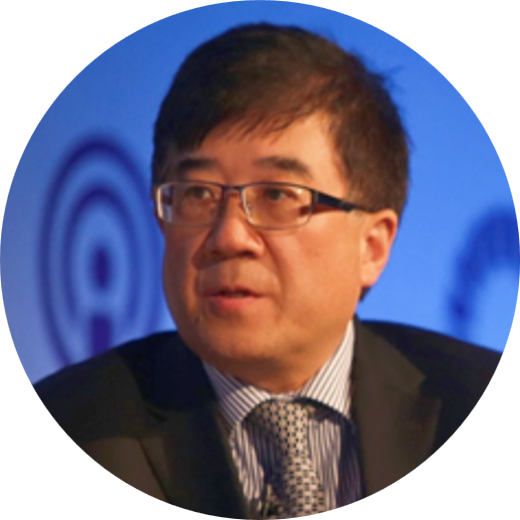
Dr. Wen Tong
CTO of Huawei Wireless
Dr. Wen Tong is the CTO, Huawei Wireless. He is the head of Huawei wireless research. In 2011, Dr. Tong was appointed the Head of Communications Technologies Labs of Huawei. Currently, he is the Huawei 5G chief scientist and leads Huawei’s 10-year-long 5G wireless technologies research and development. Prior to joining Huawei in 2009, Dr. Tong was the Nortel Fellow and head of the Network Technology Labs at Nortel. He joined the Wireless Technology Labs at Bell Northern Research in 1995 in Canada. Dr. Tong is industry recognized leader in invention and standardization of advanced wireless technologies. He is the key contributor to 3GPP since its inception. Dr. Tong was elected as a Huawei Fellow and an IEEE Fellow. He was the recipient of IEEE Communications Society Industry Innovation Award for “the leadership and contributions in development of 3G and 4G wireless systems” in 2014, and IEEE Communications Society Distinguished Industry Leader Award for “pioneering technical contributions and leadership in the mobile communications industry and innovation in 5G mobile communications technology” in 2018. He is also the recipient of R.A. Fessenden Medal. He had pioneered fundamental technologies from 1G to 5G wireless with more than 450 granted US patents. Dr. Tong is a Fellow of Canadian Academy of Engineering, and he also serves as Board of Director of Wi-Fi Alliance. He is based in Ottawa, Canada.
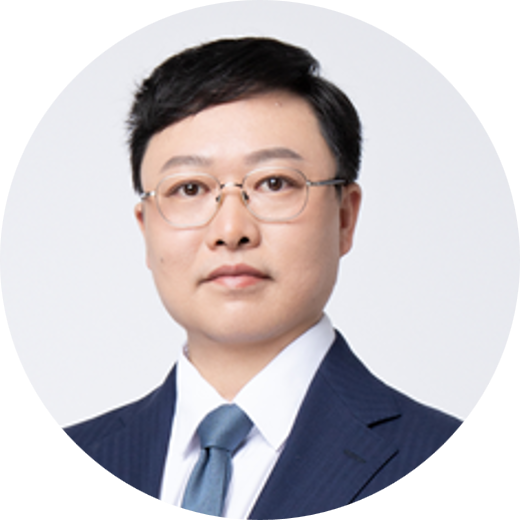
Robert Lee
Chief Technology Planner of Huawei Wireless
Robert Lee is the Chief Technology Planner of Wireless Network in Huawei. He has extensive experience in the pre-research and innovation of 3G, 4G, and 5G wireless base station technology. His planning achievements have included the intergenerational evolution of base station platforms, breakthroughs in IRF root technology, and innovation of multi-antenna form factors. He is currently focusing on identifying value directions for the future evolution of 5G-A and beyond, exploring innovative solutions and key technologies, expanding the RAN product portfolio, and enhancing the competitiveness of wireless base station technology.
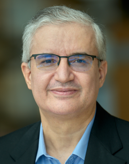
Prof. Mohamed-Slim Alouini
KAUST - SA
Mohamed-Slim Alouini was born in Tunis, Tunisia. He received the Ph.D. degree in Electrical Engineering from the California Institute of Technology (Caltech) in 1998. He served as a faculty member at the University of Minnesota then in the Texas A&M University at Qatar before joining in 2009 the King Abdullah University of Science and Technology (KAUST) where he is now the Al-Khawarizmi Distinguished Professor of Electrical and Computer Engineering. Prof. Alouini is a Fellow of the IEEE and OPTICA (Formerly the Optical Society of America (OSA)). He is currently particularly interested in addressing the technical challenges associated with the uneven distribution, access to, and use of information and communication technologies in rural, low-income, disaster, and/or hard-to-reach areas.

Prof. Symeon Chatzinotas
Luxemburg University - LU
Symeon Chatzinotas (MEng, MSc, PhD, FIEEE) is currently Full Professor / Chief Scientist I and Head of the research group SIGCOM in the Interdisciplinary Centre for Security, Reliability and Trust, University of Luxembourg. In parallel, he is an Adjunct Professor in the Department of Electronic Systems, Norwegian University of Science and Technology and a Collaborating Scholar of the Institute of Informatics & Telecommunications, National Center for Scientific Research “Demokritos”. In the past, he has lectured as Visiting Professor at the University of Parma, Italy and contributed in numerous R&D projects for the Institute of Telematics and Informatics, Center of Research and Technology Hellas and Mobile Communications Research Group, Center of Communication Systems Research, University of Surrey. He has received the M.Eng. in Telecommunications from Aristotle University of Thessaloniki, Greece and the M.Sc. and Ph.D. in Electronic Engineering from University of Surrey, UK in 2003, 2006 and 2009 respectively.
He has authored more than 800 technical papers in refereed international journals, conferences and scientific books and has received numerous awards and recognitions, including the IEEE Fellowship and an IEEE Distinguished Contributions Award. He is currently in the editorial board of the IEEE Transactions on Communications, IEEE Open Journal of Vehicular Technology and the International Journal of Satellite Communications and Networking.
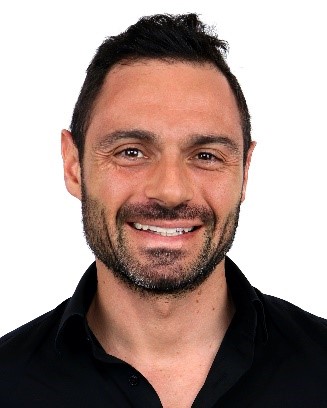
Prof. Giovanni Geraci
Telefonica and UPF - ES
Giovanni Geraci is a Principal Research Scientist at Telefonica, an Associate Professor at UPF Barcelona, and serves as an IEEE Distinguished Lecturer. He was previously with Nokia Bell Labs and holds a dozen patents on wireless technologies. He received the IEEE Communications Theory Early Achievement Award (2023), the IEEE ComSoc EMEA Outstanding Young Researcher Award (2018), and Best Paper Awards at IEEE Globecom (2022) and PIMRC (2019).
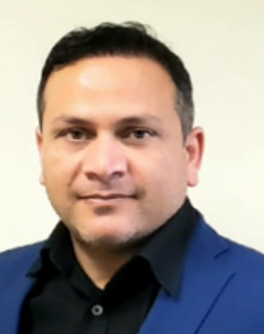
Prof. Shahid Mumtaz
Nottingham Trent University - UK
Shahid Mumtaz is an Innovative strategist with strong business acumen and passion for innovation, driving concepts, research, standards, prototypes, and products from conception to market. He has demonstrated the ability to establish cross-departmental, multidisciplinary, multi-site, and multi-cultural collaborative teams and programs. Shahid Mumtaz has more than 15 years of wireless industry/academic experience. Shahid Mumtaz received his Master's and PhD degrees in Electrical & Electronic Engineering from the Blekinge Institute of Technology, Sweden, and the University of Aveiro, Portugal, in 2006 and 2011, respectively. Shahid Mumtaz is a full professor at Nottingham Trent University (NTU), UK, and a board member of the SWFIT (Smart Wireless Innovation Facility) Center at NTU, which is worth 15M Euro. Shahid Mumtaz is an IET Fellow, IEEE ComSoc/VTS Distinguished speaker, recipient of the IEEE ComSoC Young Researcher Award, founder and past EiC of IET "Journal of Quantum communication," Vice-Chair: Europe/Africa Region- IEEE ComSoc: Green Communications & Computing society and Vice-chair for IEEE standard on P1932.1: Standard for Licensed/Unlicensed Spectrum Interoperability in Wireless Mobile Networks. His work resulted in technology transfer to companies and patented technology. His expertise lies in 5G/6G wireless technologies using AI/ML and Digital Twin tools and innovation path towards industrial and academic.
Moreover, he worked as a Senior 5G Consultant at Huawei and InterDigital, contributing to RAN1/RAN2. He authorises four technical books, 12 book chapters, 300+ technical papers (200+ Journals and Transactions, 90+ Conferences, four patents, two contributions to Standards, and 2 IEEE best paper awards in mobile communications. In addition to his work on data science, he has contributed to Wireless communication, citing more than 20000 times with an H index over 75. He has been supervising/co-supervising several PhD and Master's students. He uses mathematical and system-level tools to model and analyse emerging wireless communication architectures using AI/ML, leading to innovative Master's theoretically optimal new communication techniques. He is working closely with leading R&D groups in the industry to transition these ideas to practice. He has secured funding of around 10M Euro.
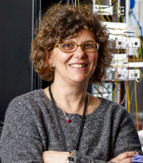
Prof. Dimitra Simeonidou
University of Bristol - UK
Dimitra Simeonidou is a Full Professor at the University of Bristol, the Co-Director of the Bristol Digital Futures Institute and the Director of Smart Internet Lab. Her research is focusing on the fields of high-performance networks, programmable networks, Future Internet, wireless-optical convergence, 5G/6G and smart city infrastructures. In the past few years, she is increasingly working with Social Sciences and Humanities on topics of climate change and digital transformation for society and businesses. Dimitra has been the Technical Architect and the CTO of the smart city project Bristol Is Open. She is currently leading the Bristol City/Region 5G and Open RAN pilots.
Dimitra is a member of the UK Government Supply Chain Diversification Advisory Council, a founding member of the UK Telecoms Innovation Network and member of the OFCOM Spectrum Advisory Board. She has led major research projects funded by UK Goverment and the EC. She is currently coordinating the DSIT REASON project developing blueprint architectures and technologies for 6G and the EPSRC JOINER project, aiming to establish a UK-wide experimentation platform for 6G research and innovation.
She is the author and co-author of over 700 publications, numerous patents and several contributions to standards. She has been co-founder of three spin-out companies developing solutions for connected smart infrastructures.
Dimitra is a Fellow of the Royal Academy of Engineering (FREng), a Fellow of the IEEE (FIEEE), Fellow of WWRF and member of UKCRC.
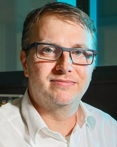
Prof. Andreas Burg
EPFL - CH
Andreas Burg received his Dipl.-Ing. degree from the Swiss Federal Institute of Technology (ETH) Zurich and the Dr. sc. techn. degree from the Integrated Systems Laboratory of ETH Zurich, in 2006. He is currently a Professor at the EPFL in Lausanne, Switzerland, where he is heading the Telecommunications Circuits Laboratory. His research focuses on both algorithms and implementation aspects of Telecom systems as well as on low-power high-density digital Integrated Circuits Design. In the area of circuits for communications, his group has developed both efficient algorithms for communications, ranging from MIMO detectors to algorithms for various types of channel coding. His recent contributions in this area focused on channel coding for 5G (Polar and LDPC codes) and on the exploration of coding strategies for 6G Wireless Systems.
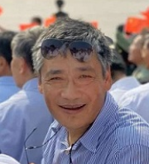
Prof. Wang Yi
Uppsala University - SE
Wang is a professor of Embedded Systems at Uppsala University. He received CAV award in 2013 for the development of UPPAAL, IEEE TCRTS Award in 2019 for outstanding contributions to real-time systems, and Uppsala University's Rudbeck Medal in 2022 for achievements in science.
He is a recipient of ERC advanced grant. He is a fellow of ACM & IEEE.
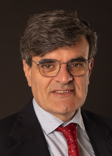
Prof. Giuseppe Lipari
University of Lille - FR
Real-Time Scheduling of Complex Task Models for Heterogeneous Hardware Platforms
Click here for abstractGiuseppe Lipari graduated in Computer Engineering from the University of Pisa in 1996, and obtained a PhD in Computer engineering from the Scuola Superiore Sant'Anna in Pisa in 2000. He is currently Full Professor of Computer Science at the University of Lille. He leads the SYCOMORES Team (Symbolic analysis and Component-based design for Modular Real-Time Embedded Systems), a shared research team between INRIA and the CRIStAL laboratory of the University of Lille. He is head of the Master of Science in "Internet of Things and Cybersecurity" at the University of Lille.
His research interests include real-time scheduling and analysis, real-time operating systems, embedded systems, timed automata, static code analysis and worst-case execution time analysis.
He is IEEE Fellow member, and member of the IUF (Institut Universitaire Français).
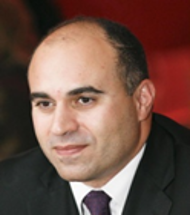
Prof. Stavros Iezekiel
University of Cyprus - CY
Stavros Iezekiel is a Professor at the University of Cyprus, where he leads the research activity in microwave photonics and space photonics (the latter with funding from the European Space Agency under the Programme for European Cooperating States). He is Director of the EMPHASIS Research Centre (an interdepartmental research centre targeting electronics, microwaves, photonics and sensing). His current research focuses on integrated microwave photonics (based on thin-film lithium niobate, silicon nitride and indium phosphide platforms) and the photonic generation of microwaves with applications to high-throughput satellite payloads and 6G mm-wave radio-over-fibre.
He has published over 190 papers and edited a book on microwave photonics. Prof. Iezekiel received the 1999 IEE/NPL Measurements Prize for his work in microwave photonic measurements. He served as the Editor-in-Chief of IET Microwaves, Antennas and Propagation from 2009 to 2019, and is a Fellow of the IET and Fellow of the Institute of Physics. In 2011 he was an Invited Professor at the ESYCOM Lab of ESIEE Paris, and since 2017 he has collaborated with NICT Japan on joint projects in microwave photonics for 6G, which includes demonstrating optoelectronic oscillators at W-band frequencies.
From 1993 to 2006, he was on the academic staff at the University of Leeds, where he served as Deputy Director of the Institute of Microwaves and Photonics. He supervised 17 Ph.D. students while at Leeds, many of whom won prizes for their work and are now in senior positions in UK and US industry or have formed their own start-ups. Much of his work has been wholly or partially funded by industry (e.g. BAES, Keysight, Sony).
Prof. Iezekiel has actively contributed to several professional societies, including the IEEE and URSI, where he has served on several technical committees, guest-edited special issues and organized several workshops and conferences in microwaves and photonics, including the 2015 IEEE International Topical Meeting on Microwave Photonics.
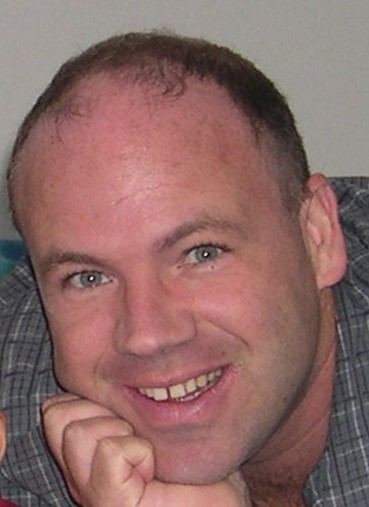
Prof. Rui Dinis
Universidade Nova De Lisboa - PT
Rui Dinis received the Ph.D. degree from IST, Technical University of Lisbon, Portugal, in 2001 and the Habilitation in Telecommunications from FCT, Nova University of Lisbon (UNL) in 2010 where he is a Full Professor. Rui Dinis is also researcher at IT (Instituto de Telecomunicações). During 2003 he was a visiting professor at Carleton University, Ottawa, Canada. Rui Dinis is an IEEE ComSoc Distinguished Lecturer and an IEEE VTS Distinguished Speaker. He is or was editor at several major IEEE journals (IEEE TWC, TCOM, TVT and OJ-COMS) and at Elsevier Physical Communication and Hindawi ISRN Communications and Networking. He was also a guest editor for multiple special numbers in several journals. He was involved in the organization of IEEE conferences, namely several VTC and GLOBECOM, and is a member of several technical committees of IEEE Communications Society.
Rui Dinis has been actively involved in several international research projects in the broadband wireless communications area. He has 30 PhD students (current and past), published 7 books, over 200 journal papers and book chapters and over 400 conference papers (of which 5 received best papers’ awards), and has over 20 patents. He was involved in pioneer projects on the use of mm-waves for broadband wireless communications and his main research activities are on modulation and transmitter design, nonlinear effects on digital communications and receiver design (detection, equalization, channel estimation and carrier synchronization), with emphasis on frequency-domain implementations, namely for MIMO systems and/or OFDM and SC-FDE modulations. He is also working on cross-layer design and optimization involving PHY, MAC and LLC issues, as well as indoor positioning techniques.
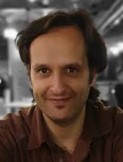
Prof. Gómez García Roberto
University of Alcalá - ES
Get Rid of RF Isolators! Advanced Reflectionless Microwave Filtering Components for Emerging Compact/Energy-Efficient Wireless RF Front-Ends
Click here for abstractRoberto Gómez-García (Fellow, IEEE) is a Full Professor with the Department of Signal Theory and Communications, University of Alcalá, Alcalá de Henares, Spain. His current research interests include the design of fixed/tunable high-frequency filters and multiplexers in planar, hybrid, and monolithic microwave-integrated circuit technologies, multifunction circuits and systems, software-defined radio and radar architectures for telecommunications, remote sensing, and biomedical applications, and displacement RF sensors. He has authored/co-authored about 150 papers in international journals and 180 papers in international conferences.
Dr. Gómez-García serves as a member for the Technical Review Board for several IEEE and EuMA conferences. He is also a member of the IEEE MTT-S Filters (MTT-5), the IEEE MTT-S RF MEMS and Microwave Acoustics (MTT-6), the IEEE MTT-S Wireless Communications (MTT-23), the IEEE MTT-S Biological Effects and Medical Applications of RF and Microwave (MTT-28), and the IEEE CAS-S Analog Signal Processing Technical Committees. He was a recipient of the 2016 IEEE Microwave Theory and Techniques Society (MTT-S) Outstanding Young Engineer Award. He was an IEEE CAS-S Distinguished Lecturer (2020-2022). He was an Associate Editor of the IEEE TRANSACTIONS ON MICROWAVE THEORY AND TECHNIQUES from 2012 to 2016, the IEEE TRANSACTIONS ON CIRCUITS AND SYSTEMS-I: REGULAR PAPERS from 2012 to 2015, the IEEE MICROWAVE AND WIRELESS COMPONENTS LETTERS from 2018 to 2020, as well as other journals such as IEEE ACCESS, IET Microwaves, Antennas, and Propagation, and the International Journal of Microwave and Wireless Technologies. He was a Senior Editor of the IEEE JOURNAL ON EMERGING AND SELECTED TOPICS IN CIRCUITS AND SYSTEMS from 2016 to 2017 and the MTT-S Newsletter Working Group Chair from 2019 to 2021. He was a Guest Editor for several Special/Focus Issues and Sections in IEEE and IET Journals. Currently, he is the Editor-in-Chief of the IEEE MICROWAVE AND WIRELESS TECHNOLOGY LETTERS, Associate Editor of the IEEE JOURNAL OF ELECTROMAGNETICS, RF AND MICROWAVES IN MEDICINE AND BIOLOGY, TC-5 Topic Editor of the IEEE JOURNAL OF MICROWAVES, and editorial board member of Electromagnetic Science.
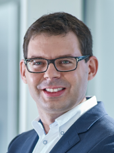
Prof. Filip Tavernier
KU Leuven - BE
Filip Tavernier is an Associate Professor at KU Leuven in the Department of Electrical Engineering. His main research interests are analog and mixed-signal integrated circuits for high-performance data converters, DC-DC converters, optical receivers, and cryogenic circuits.
Prof. Tavernier serves as SSCS Associate Vice President for Education and SSCS Benelux Chapter treasurer and is a past SSCS Distinguished Lecturer. He is or was a member of the Technical Program Committee of the European Solid-State Circuits Conference (ESSCIRC), the Custom Integrated Circuits Conference (CICC), and the International Solid-State Circuits Conference (ISSCC) Student Research Preview Committee. He has also served as an Associate Editor for the IEEE Solid-State Circuit Letters and the IEEE Journal of Solid-State Circuits.
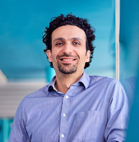
Prof. Mehdi Bennis
Oulu University - FI
Dr. Mehdi Bennis is a full (tenured) Professor at the Centre for Wireless Communications, University of Oulu, Finland and head of the intelligent connectivity and networks/systems group (ICON). His main research interests are at the intersection of communication and ML in 5G/6G networks. He has published more than 200+ research papers in international conferences, journals and book chapters. He has been the recipient of several prestigious awards including the 2015 Fred W. Ellersick Prize from the IEEE Communications Society, the 2016 Best Tutorial Prize from the IEEE Communications Society, the 2017 EURASIP Best paper Award for the Journal of Wireless Communications and Networks, the all-University of Oulu award for research, the 2019 IEEE ComSoc Radio Communications Committee Early Achievement Award and the 2020-2021 Clarviate Highly Cited Researcher by the Web of Science. Dr Bennis is a Specialty Chief Editor for Data Science for Communications in the Frontiers in Communications and Networks journal and an IEEE Fellow.
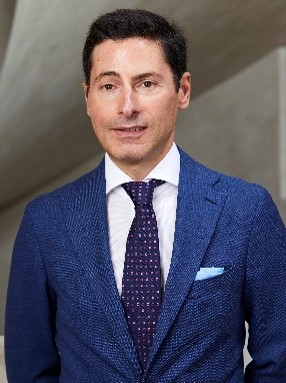
Prof. Carlo Fischione
KTH - SE
Dr. Carlo Fischione is full Professor at KTH Royal Institute of Technology, Electrical Engineering and Computer Science, Division of Network and Systems Engineering (NSE), Stockholm, Sweden. He is Director of the KTH-Ericsson Data Science Micro Degree Program directed to Ericsson globally, Director of the undergraduate education at NSE, Chair of the IEEE Machine Learning for Communications Emerging Technologies Initiative, and founding General Chair of the IEEE International Conference on Machine Learning for Communications and Networking – IEEE ICMLCN 2024. He is distinguished lecturer of the IEEE Communication Society. He received the Ph.D. degree in Electrical and Information Engineering (3/3 years) in May 2005 and the Laurea degree in Electronic Engineering (Laurea, Summa cum Laude, 5/5 years) in April 2001, both from University of L’Aquila, Italy. He received the Starting Grant of the Swedish Research Council in 2008. Prof. Fischione has held research positions at Massachusetts Institute of Technology, Cambridge, MA (2015, Visiting Professor); Harvard University, Cambridge, MA (2015, Associate); and University of California at Berkeley, CA (2004-2005, Visiting Scholar, and 2007-2008, Research Associate). He is Honorary Professor at University of L’Aquila, Italy, Department of Mathematics, Information Engineering, and Computer Science. His research interests include applied optimization, wireless Internet of Things, and machine learning. He received a number of awards, such as the “IEEE Communication Society S. O. Rice” award for the best IEEE Transactions on Communications paper of 2018, the best paper award of IEEE Transactions on Industrial Informatics (2007). He is Editor of IEEE Transactions on Communications (Machine Learning for Communications area) and IEEE Transactions on Machine Learning for Communication and Networking, and has served as Associated Editor of IFAC Automatica (2014-2019). He is co-founder and scientific advisor of ELK.Audio. Prof. Fischione is Member of IEEE (the Institute of Electrical and Electronic Engineers), and Ordinary Member of DASP (the Italian academy of history Deputazione Abruzzese di Storia Patria).
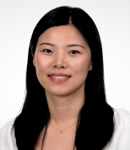
Prof. Zheng Chen
Linköping University - SE
Distributed Machine Learning over Wireless Networks: A Communications Perspective
Click here for abstractZheng Chen is an Associate Professor in the Department of Electrical Engineering at Linköping University, Sweden. She received her M.Sc. and Ph.D. degrees in 2013 and 2016, respectively, both from CentraleSupélec, Université Paris-Saclay, France. Her research interests revolve around stochastic modelling and optimization in wireless communication systems, including wireless edge caching, energy harvesting, age of information, and massive MIMO. Currently, her research focuses on distributed information processing and machine learning over wireless networks, covering topics such as federated edge learning, over-the-air computation, and communication-efficient distributed consensus and optimization.
Dr. Chen is the recipient of the 2020 IEEE Communications Society Young Author Best Paper Award. She has served as the co-chair of several workshops and special sessions at IEEE GLOBECOM, ICASSP, SPAWC, Asilomar, and as the technical program chair of the 2022 IEEE SPS-EURASIP summer school on “Defining 6G: Theory, Applications and Enabling Technologies”. She is currently an Associate Editor of the IEEE Transactions on Wireless Communications, IEEE Transactions on Communications, and IEEE Transactions on Green Communications and Networking.
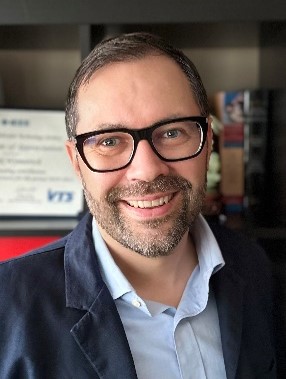
Prof. Henk Wymeersch
Chalmers University of Technology - SE
Henk Wymeersch obtained the Ph.D. degree in Electrical Engineering/Applied Sciences in 2005 from Ghent University, Belgium. He is currently a Professor of Communication Systems with the Department of Electrical Engineering at Chalmers University of Technology, Sweden. Prior to joining Chalmers, he was a postdoctoral researcher from 2005 until 2009 with the Laboratory for Information and Decision Systems at the Massachusetts Institute of Technology. Prof. Wymeersch served as Associate Editor for IEEE Communication Letters (2009-2013), IEEE Transactions on Wireless Communications (since 2013), and IEEE Transactions on Communications (2016-2018) and is currently Senior Member of the IEEE Signal Processing Magazine Editorial Board. During 2019-2021, he was an IEEE Distinguished Lecturer with the Vehicular Technology Society. He is a Fellow of the IEEE. His current research interests include the convergence of communication and sensing, in a 5G and Beyond 5G context.
